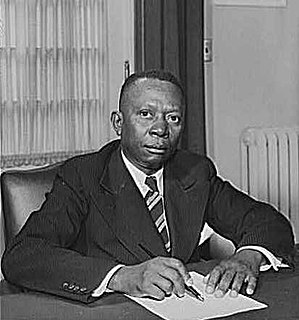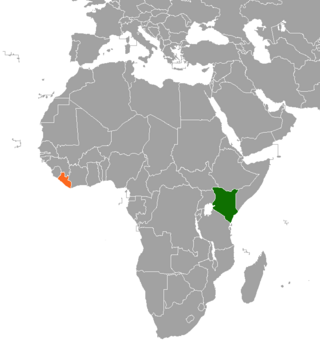Related Research Articles
A commonwealth is a traditional English term for a political community founded for the common good. Historically it has sometimes been synonymous with "republic". The noun "commonwealth", meaning "public welfare general good or advantage", dates from the 15th century. Originally a phrase it comes from the old meaning of "wealth", which is "well-being", and is itself a loose translation of the Latin res publica (republic). The term literally meant "common well-being". In the 17th century, the definition of "commonwealth" expanded from its original sense of "public welfare" or "commonweal" to mean "a state in which the supreme power is vested in the people; a republic or democratic state".
A trade union, often simply called a union, is an organization of workers who have come together to achieve many common goals, such as protecting the integrity of their trade, improving safety standards, and attaining better wages, benefits, and working conditions through the increased bargaining power wielded by the creation of a monopoly of the workers. Trade unions typically fund the formal organization, head office, and legal team functions of the trade union through regular fees or union dues. The delegate staff of the trade union representation in the workforce are made up of workplace volunteers who are appointed by members in democratic elections.

Liberia, officially the Republic of Liberia, is a country on the West African coast. It is bordered by Sierra Leone to its northwest, Guinea to its north, Côte d'Ivoire to its east, and the Atlantic Ocean to its south-southwest. It has a population of around 5 million and covers an area of 111,369 square kilometers (43,000 sq mi). English is the official language, but over 20 indigenous languages are spoken, representing the numerous ethnic groups who make up more than 95% of the population. The country's capital and largest city is Monrovia.
The economy of Liberia is extremely underdeveloped, largely due to the First Liberian Civil War from 1989–96. Liberia itself is one of the poorest and least developed countries in the world.

Liberian foreign relations were traditionally stable and cordial throughout much of the 19th and 20th centuries. During the 1990s, Charles Taylor's presidency and the First and Second Liberian Civil Wars underscored Liberian relations with the Western world, the People's Republic of China, and its neighboring countries in Western Africa.

The Nigerian Armed Forces are the armed forces of the Federal Republic of Nigeria. Its origins lie in the elements of the Royal West African Frontier Force that became Nigerian when independence was granted in 1960. In 1956 the Nigeria Regiment of the Royal West African Frontier Force (RWAFF) was renamed the Nigerian Military Forces, RWAFF, and in April 1958 the colonial government of Nigeria took over from the British War Office control of the Nigerian Military Forces.

The World Federation of Trade Unions (WFTU) is an international federation of trade unions. WFTU was established in 1945 to replace the International Federation of Trade Unions. Its mission was to bring together trade unions across the world in a single international organization, much like the United Nations. After a number of Western trade unions left it in 1949, as a result of disputes over support for the Marshall Plan, to form the International Confederation of Free Trade Unions, the WFTU was made up primarily of unions affiliated with or sympathetic to communist parties. In the context of the Cold War, the WFTU was often portrayed as a Soviet front organization. A number of those unions, including those from Yugoslavia and China, left later when their governments had ideological differences with the Soviet Union.

William Vacanarat Shadrach Tubman was a Liberian politician. He was the 19th President of Liberia and the longest serving president in the country's history, serving from his election in 1944 until his death in 1971.
A national trade union center is a federation or confederation of trade unions in a single country. Nearly every country in the world has a national trade union center, and many have more than one. When there is more than one national center, it is often because of ideological differences—in some cases long-standing historic differences. In some regions, such as the Nordic countries, different centers exist on a sectoral basis, for example for blue collar workers and professionals.

Flag of convenience (FOC) is a business practice whereby a ship's owners register a merchant ship in a ship register of a country other than that of the ship's owners, and the ship flies the civil ensign of that country, called the flag state. The term is often used pejoratively, and although common, the practice is sometimes regarded as contentious. Each merchant ship is required by international law to be registered in a registry created by a country, and a ship is subject to the laws of that country, which are used also if the ship is involved in a case under admiralty law. A ship's owners may elect to register a ship in a foreign country which enables it to avoid the regulations of the owners' country which may, for example, have stricter safety standards. They may also select a jurisdiction to reduce operating costs, avoiding higher taxes in the owners' country and bypassing laws that protect the wages and working conditions of mariners. The term "flag of convenience" has been used since the 1950s. A registry which does not have a nationality or residency requirement for ship registration is often described as an open registry. Panama, for example, offers the advantages of easier registration and the ability to employ cheaper foreign labour. Furthermore, the foreign owners pay no income taxes.

Cape Mesurado, also called Cape Montserrado, is a headland on the coast of Liberia near the capital Monrovia and the mouth of the Saint Paul River. It was named Cape Mesurado by Portuguese sailors in the 1560s. It is the promontory on which African American settlers established the city now called Monrovia on 25 April 1822.
The World Organization of Independent Scouts is an international Scouting organization for traditional Scouting.

Kenya– Liberia relations are bilateral relations between Kenya and Liberia.
The Edward J. Roye Building is a wrecked skyscraper on Ashmun Street in the commercial district of Monrovia, the capital city of Liberia. Constructed as the headquarters of the True Whig Party, it was renamed the "E.J. Roye Memorial Building" in 1964. It is one of the most prominent buildings in the city. In the building's earlier years, it included a grand auditorium, and before the 1980 coup d'état, it hosted government meetings such as sessions of the Legislature in 1975, as well as non-governmental conventions such as the Liberian Federation of Trade Unions in 1977. It sits in the heart of the city's pre-coup commercial district, near locations such as the former offices of the American Colonization Society.
The Labor Congress of Liberia was a trade union centre in Liberia. It was one of the precursors of the Liberian Federation of Trade Unions (LFTU).
The United Workers Congress of Liberia was a trade union centre in Liberia.
The Liberian Federation of Trade Unions was a trade union centre in Liberia.
Amos N. Gray was a Liberian trade unionist. Born in Pull River, Maryland County, Gray attended primary school in Pull River and secondary school in Harper. He attended college in Monrovia, studying social studies for two years and law for one year. During his college years he worked part-time at the Freeport of Monrovia. Working at the port in 1960, he joined the Maritime and Dock Workers Union. After his college years he worked at the Maritime and Dock Workers Union office in Monrovia.
People with disability in Liberia face many challenges. The cultural attitude towards disability in Liberia is largely negative. Often, it is seen as the result of witchcraft or as punishment for a person's behavior. However, the government and non-governmental organizations (NGO) are working towards a more inclusive country for people with disabilities.
References
- ICTUR; et al., eds. (2005). Trade Unions of the World (6th ed.). London, UK: John Harper Publishing. ISBN 0-9543811-5-7.
| This Liberia-related article is a stub. You can help Wikipedia by expanding it. |
| This article related to an African trade union is a stub. You can help Wikipedia by expanding it. |